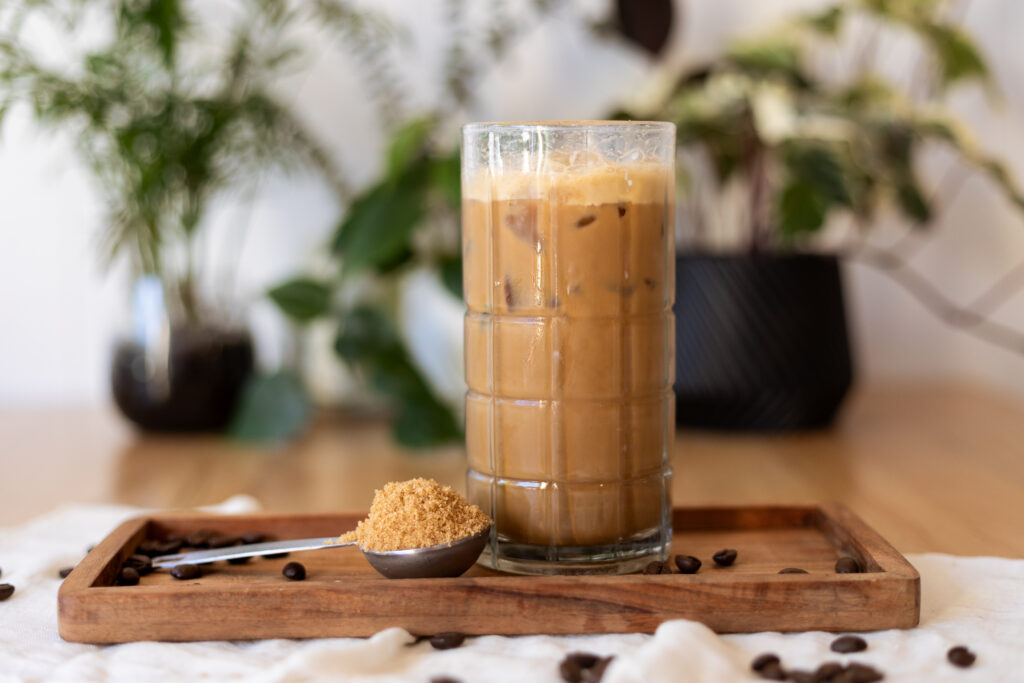
It’s nothing new that we pride ourselves on offering healthy, chemical-free food and drinks that has been as minimally proccessed as possible, while not compromising on the flavor.
One way we do this is by using decaf coffee that has been decaffeinated using the Swiss Water Process. And although the term is becoming more familiar, we realize that many people don’t really understand what that means or why it is better than the traditional ways of decaffeinating coffee.
So today we are going to take a look at what the Swiss Water process is, what it’s benefits are, and why we choose to use it rather than coffee decaffeinated using other processes.
The Swiss Water way of decaffeinating coffee was developed in the 1930’s in Switzerland (thus the name ‘Swiss Water’), but it wasn’t commercialized until the 1980’s by a Canadian company called the Swiss Water Decaffeinated Coffee Company. While it is a carefully managed process involving close attention to time, temperature, and water, it is pretty simple in the fact that the only added ingredient is water.
Green coffee (the raw, unroasted bean straight off of the coffee plant) is soaked in hot water for 10 hours, causing the beans to expand and become porous. The beans are then removed, leaving a water solution of caffeine and flavor compounds called green coffee extract. This extract is passed through charcoal filters to remove the caffeine, leaving only the coffee flavors. The extract is then used to decaffienate the next batch of beans. When new beans are placed in this extract, the imbalance of the caffeine content causes the caffeine from the new beans to migrate out of the beans into the extract. But because the extract already contains the flavor compounds from the previous beans, the new beans retain all of the original flavor. This is repeated until (nearly) all of the caffeine has been removed.
Once the caffeine has been removed, the beans are dried, packed, and shipped, leaving no reason for any chemical contact.
As for it’s benefits over other forms of decaffeination, the most important is that there is no use of or even exposure to any chemicals. Another benefit is that this process leaves the original flavor notes and aromas of the coffee beans the most intact. Where other decaffeination processes add chemicals that can and do affect the flavor of the final result, since nothing is added to the beans during the Swiss Water Process except water, the flavor remains untouched. And finally, while the goal for most decaffeination processes is to remove at least 97% of the caffeine, the Swiss Water Process removes 99.9% of it.
So why is the Swiss Water Process superior to other forms of decaffeination, and why do we choose to use it? Other decaffeination processes use one of two chemicals – methylene chloride or ethyl acetate. Methylene chloride has many industrial and commercial uses, including paint stripping and metal cleaning. It has enough health risks, ranging from nausea and dizziness up to adverse effects on the nervous system and certain forms of cancer, that OSHA has established permissable exposure limits and the EPA has banned most consumer uses and is phasing out most industrial and commercial uses.
Ethyl acetate, although naturally found in some fruits, is also a synthetic chemical that has made it onto the hazardous substance list. It is a common component in paints, laquers, and nail polish remover, as well as printer inks and modeling glue. It is highly flammable, can cause eye, skin, nose, and throat irritation, and in cases of repeated or extended exposure can lead to liver and kidney damage. Despite all this, it is widely accepted and used in the food and beverage industry.
While the amount of these chemicals that show up in decaffeinated coffee beans is well below the EPA (enviromental protection agency) limits, it is concerning that it is allowed at all, considering the harmful affects that they can have. And since there is a healthier, chemical-free way of decaffeinating coffee, which produces even better results, why would we not use it?!
We are proud to be a Swiss Water Decaffeinated Coffee establishment!


Leave a Reply